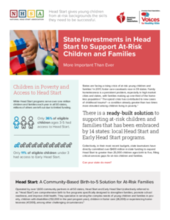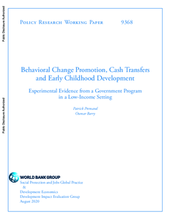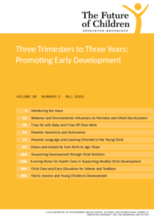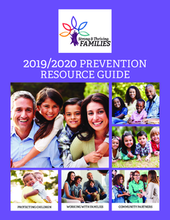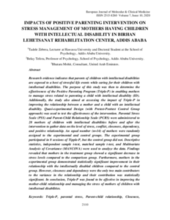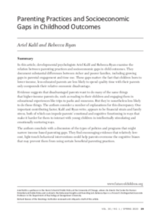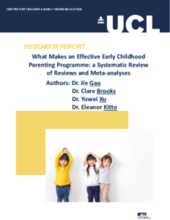Displaying 181 - 190 of 947
This study examined whether caseworker demographic factors, attitudes towards evidence-based practices (EBPs) and organizational factors predict caseworker referrals. Relying upon tenets of the Theory of Planned Behavior, this study also examined whether intention to refer predicts caseworker referrals to an EBP.
In this paper, the authors report the results of a study examining parenting challenges among a sample of African immigrant parents in Alberta, Canada.
This brief from Head Start provides an overview of state funding for Head Start, a collection of comprehensive birth to five programs in the U.S. specifically designed to strengthen families, promote school readiness, and improve child health.
This paper disentangles the effects of behavioral change promotion from cash transfers to poor households through an experiment embedded in a government program in Niger.
This issue of the Future of Children focuses on the first years of life starting with in utero experiences.
This Resource Guide offers support to community service providers as they work with parents, caregivers, and children to prevent child maltreatment and promote social and emotional well-being.
The purpose of this study was to determine the effectiveness of the Positive Parenting Program (Triple-P) in enabling mothers to manage stress related to parenting a child with intellectual disability (ID).
This toolkit is designed for parents/caregivers and the social service workforce guiding them. It provides practical tips that can be implemented quickly and mini lessons on topics of importance to anyone raising or supporting a child.
In this article, developmental psychologists Ariel Kalil and Rebecca Ryan examine the relation between parenting practices and socioeconomic gaps in child outcomes.
By synthesising the research evidence, this study seeks to address the questions of whether early childhood parenting programmes are effective in improving parenting and enhancing children's development; and which factors of the programme design and implementation contribute to the successful outcomes of parenting programmes.

